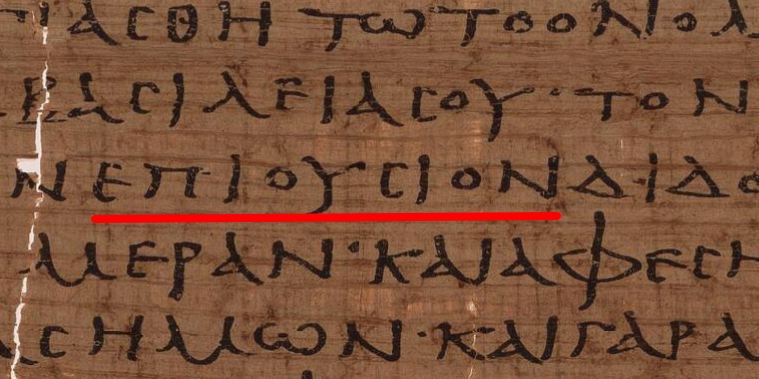the full line being “Give us today our epiousion bread”
Today, most scholars reject the translation of epiousion as meaning daily. The word daily only has a weak connection to any proposed etymologies for epiousion. Moreover, all other instances of “daily” in the English New Testament translate hemera (ἡμέρα, “day”), which does not appear in this usage.[1][2] Because there are several other Greek words based on hemera that mean daily, no reason is apparent to use such an obscure word as epiousion.[4] The daily translation also makes the term redundant, with “this day” already making clear the bread is for the current day.[21]
i don’t think wikipedia mentions this but it has ‘pious’ in the middle



Historically? All of this is at least disputed. Within the church canon? “[Jesus] broke the bread, gave it to his disciples and said ‘Take this, all of you and eat it, for it is my body, which will be given up for you.’ When [the last] supper had ended he took the cup. Again he gave thanks and praise, gave the cup to his disciples and said 'Take this, all of you, and drink from it. For it is my blood, the blood of the new covenant which will be shed for you and for all so that sin may be forgiven.”
Theologically speaking it’s not a matter of debate at all that communion predates Christ’s death and therefore the founding of the Church or the establishment of the Lord’s prayer.
Communion is the Christianization of the Judaic holiday of Passover. The referenced verses are literally a group of Jews celebrating Passover, on Passover. Not only do the forms of communion predate Christianity, they predate Christ. If you read a few verses before that, possibly depending on which gospel you’re reading, it literally says that.